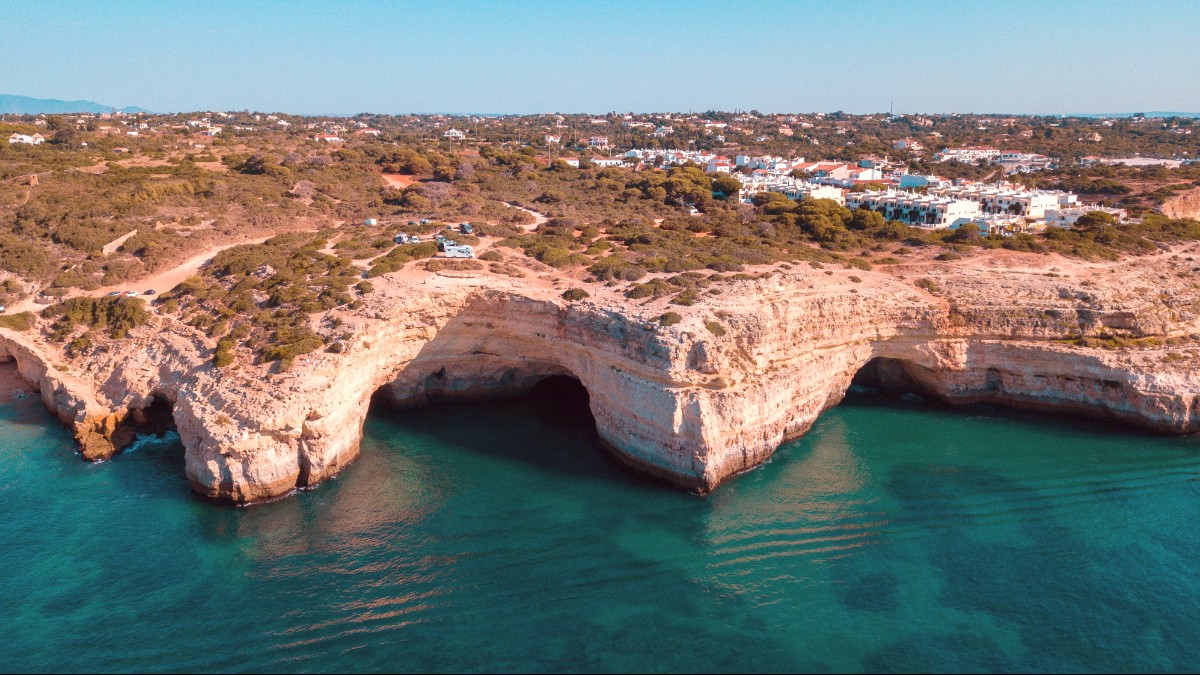
The Algarve, Portugal
Faro's weather distinct seasonal variations. Summers, from June to August, bring the hottest and driest conditions. Average temperatures range from 20°C (68°F) to 30°C (86°F). July and August often temperatures exceeding 35°C (95°F), sometimes reaching extreme highs during heatwaves. Rainfall during these months very rare, plentiful sunshine for beach and outdoor activities. Humidity moderate.
Autumn, spanning September to November, from warm to mild. Temperatures typically fall between 15°C (59°F) and 25°C (77°F). October and November increasing rainfall, though sunshine common. This period a pleasant climate for exploring without the intense summer heat.
Faro no monsoons or hurricanes. Extreme temperatures can occur during July and August.
Heatwaves sometimes push temperatures to 40°C (104°F) or higher. During these times, sun protection, constant hydration, and seeking shade have high merit.
Largest crowds.
Hottest weather, optimal for beach activities and water sports. All tourist services operate fully. Lively atmosphere.
Accommodation and flight prices peak. Attractions and beaches crowd. Heat intense.
Many consider this the ideal time.
Temperatures pleasant, warm but not overly hot. Fewer crowds. Lower prices. Sea warm enough for swimming.
Some smaller seasonal businesses may not open or may close early.
Good for budget travelers and quiet visits.
Lowest prices. Minimal tourist numbers. Mild weather for hiking and cycling. Different perspective of Algarve.
Cooler temperatures, less appealing beach activities. Rain chance increases. Some businesses closed. Shorter daylight.
Strategic timing aligns with different Faro activities. Weather conditions vary by season, influencing outdoor pursuits.
Beach enjoyment, hiking, sightseeing, golf, and birdwatching each find their prime season.
June to September. Warmest sea, reliable sunshine.
March to May and September to November. Mild temperatures, less rain.
March to June and September to November. Pleasant temperatures, fewer crowds.
October to May. Cooler weather, less crowded courses.
Autumn (Sep-Oct) and Spring (Mar-Apr). Migratory species.
Portugal a Schengen Area member, which simplifies travel for many nationalities.
For non-EU/EEA/Swiss citizens, a Schengen visa covers stays over 90 days in 180. Many nationalities enjoy visa-exempt status for shorter stays, up to 90 days. ETIAS authorization for visa-exempt non-EU nationals from mid-2025 will be important.
No specific health-related entry needs for general tourism as of early 2024.
Faro travel costs vary based on your travel style.
Portugal uses the Euro (€, EUR). Familiarize yourself with Euro banknotes and coins.
ATMs (Multibanco) are widely available. They a convenient way to withdraw cash at competitive rates. Inform your bank about travel plans to avoid card blocking.
Hostel/Guesthouse: €20-€35. Food: €15-€25. Transport: €5-€10. Activities: €10-€15.
Public transport and walking keep costs low.
Fine dining and extensive tours beyond this range.
3-star hotel/apartment: €60-€100. Food: €30-€50. Transport: €10-€20. Activities: €20-€30.
Comfortable stays and varied dining choices.
Luxury options not covered.
4/5-star hotel/villa: €150-€400+. Food: €70+. Transport: €30+. Activities: €50+.
High-end experiences and private services.
Budget travel not within this scope.
| Category | Item/Service | Approximate Cost (€) |
|---|---|---|
| Accommodation | Hostel Dorm | €20-€40 |
| Meals | Lunch (Local Cafe) | €8-€15 |
| Transportation | Local Bus Ticket | €1.50-€2.50 |
This section covers health recommendations, emergency services access, and safety tips.
No specific vaccinations for entry to Portugal from most countries.
Consult your doctor or travel clinic for personalized advice.
Ensure routine vaccinations are up to date.
Travelers to Faro might encounter certain health issues, mostly minor ones. Simple prevention strategies them.
Sunburn and heatstroke common in summer. Use high-SPF sunscreen. Stay hydrated by drinking plenty of water, even if you do not feel thirsty.
Mosquitoes can be present, especially near marshy areas like the Ria Formosa Natural Park, especially at dusk. Use an effective insect repellent. Minor injuries can occur; carry a basic first aid kit.
Tap water in Faro is generally safe to drink.
112 for police, fire, ambulance nationwide.
Hospital de Faro main public hospital in the city.
Pharmacies (Farmácias) recognized by a green cross.
Faro a safe city. Petty crime, like pickpocketing, can occur. Natural hazards include wildfires and heatwaves.
An RFID-blocking wallet safeguards credit card data.
A wide-brimmed hat shades your face and neck from strong sun.
Drinking plenty of water prevents dehydration in warm weather.